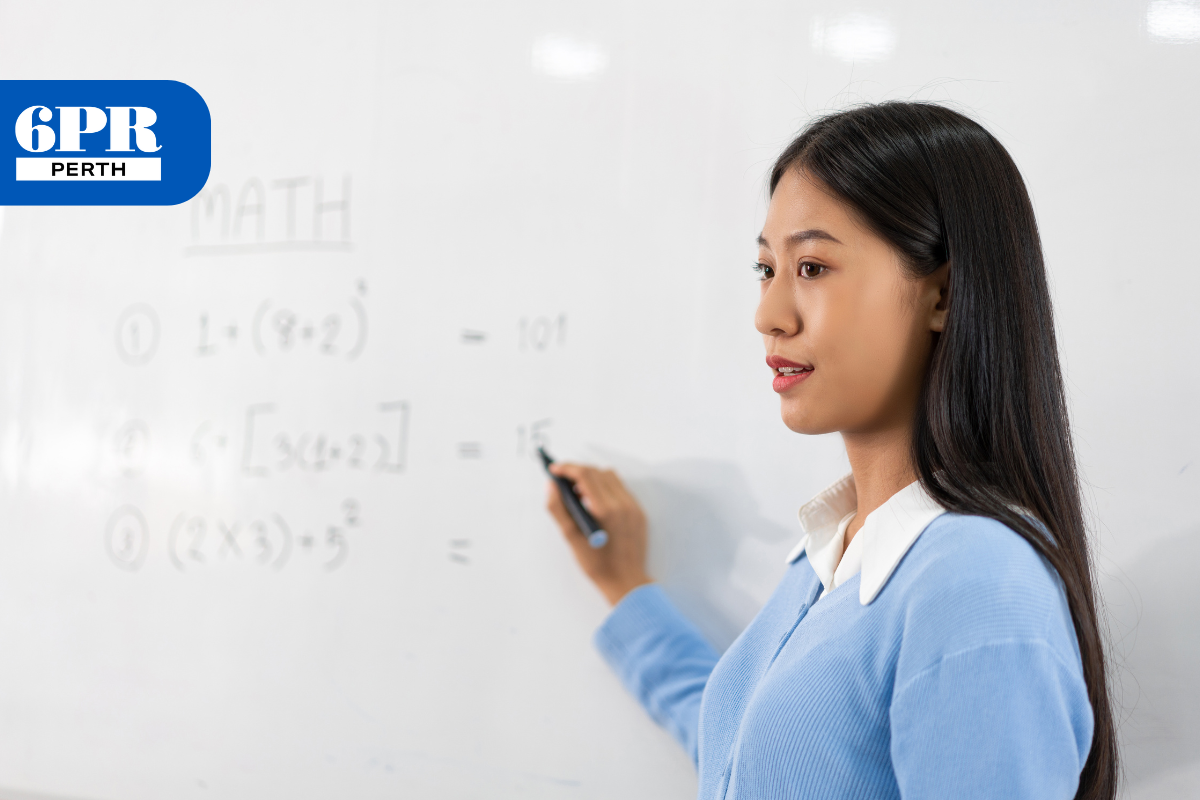All Regarding Competent Math Teachers: Their Duty in Fostering Trainee Growth and Success in Math Education
Certified mathematics teachers are crucial in shaping trainees' understanding and appreciation of mathematics. Their deep understanding and efficient teaching techniques can greatly influence pupil outcomes. These instructors not only give mathematical skills however likewise cultivate an inclusive environment that meets diverse finding out requirements. As they embrace ingenious approaches, the concern occurs: exactly how do these techniques especially improve pupil interaction and achievement in math?
The Relevance of Qualified Math Educators in Education
Although several variables contribute to pupil success in maths, the visibility of certified mathematics instructors stands out as an essential component in promoting effective learning settings. Study continually suggests that trainees educated by teachers with strong mathematical backgrounds often tend to demonstrate greater levels of understanding and success. Certified math teachers not only possess a deep understanding of mathematical principles but additionally the pedagogical abilities needed to convey intricate concepts in easily accessible methods. They can determine pupils' specific needs and adapt their mentor techniques appropriately, promoting inclusivity and engagement. Additionally, their competence allows them to produce a favorable classroom environment that motivates risk-taking and strength in problem-solving. This supportive atmosphere promotes a growth attitude among students, boosting their confidence and inspiration in mathematics. Overall, certified mathematics teachers play an important function in forming pupils' mindsets towards math, inevitably influencing their future chances and scholastic trajectories.
Secret Qualities of Efficient Mathematics Educators
Reliable math teachers possess several crucial qualities that boost their teaching efficiency. These include deep subject expertise, strong communication skills, and adaptive teaching strategies that cater to diverse learning requirements. Acknowledging and growing these features can considerably influence trainee understanding and involvement in mathematics.
Deep Topic Knowledge
While a solid pedagogical strategy is essential, deep subject expertise remains a keystone of effective math teachers. Such expertise allows educators to comprehend mathematical ideas thoroughly and to expect pupil misunderstandings. Educators with a solid grasp of mathematics not just supply material with confidence however likewise connect different subjects, fostering a richer discovering atmosphere. They are geared up to use varied training techniques that satisfy various discovering designs, making complex ideas much more accessible. Deep subject understanding equips instructors to engage in meaningful conversations with pupils, urging critical thinking and analytic abilities. Eventually, the deepness of understanding that mathematics educators have greatly affects pupils' scholastic development and accomplishment in mathematics, laying a solid foundation for future knowing.

Strong Interaction Abilities
Deep subject understanding alone is insufficient for cultivating an efficient knowing environment in maths; solid communication abilities are just as crucial for efficient math educators. These skills enable instructors to share intricate concepts in easily accessible means, ensuring that pupils comprehend fundamental ideas. Effective interaction includes not only clearness but likewise the ability to proactively pay attention, urging trainee participation and addressing misunderstandings. By cultivating an open dialogue, educators produce a supportive class atmosphere where trainees feel comfy asking concerns and revealing their ideas. Furthermore, strong communicators can adjust their language and descriptions to match diverse discovering styles, improving student interaction and understanding. Ultimately, efficient interaction bridges the gap between an educator's expertise and a trainee's understanding, substantially influencing academic accomplishment in mathematics.
Flexible Mentor Strategies
A variety of flexible training approaches are necessary for reliable mathematics educators aiming to satisfy the diverse requirements of their trainees. These approaches allow instructors to tailor their direction based on individual knowing abilities, styles, and rate of interests. qualified math teachers. Methods such as differentiated instruction, where instructors change material, procedure, or product, aid address differing effectiveness degrees. Furthermore, integrating innovation and interactive tools can enhance engagement and facilitate personalized knowing experiences. Formative analyses allow educators to monitor progression and change teaching methods appropriately. Collaborative group work advertises peer discovering, fostering a helpful setting. By using these adaptive strategies, math educators can produce inclusive classrooms that urge all students to grow and accomplish their academic objectives, eventually cultivating a love for maths
Ingenious Teaching Techniques Used by Math Teachers
As educators look for to engage students better, innovative teaching methods have actually arised as a prime focus in mathematics class. These methods aim to enhance understanding and retention of mathematical principles. One famous approach is the usage of innovation, such as interactive software program and online simulations, which enables students to picture intricate problems and get prompt feedback.Additionally, project-based learning encourages partnership and real-world application of mathematics concepts, cultivating vital assuming abilities. Gamification, where mathematics ideas are incorporated right into game-like environments, has also gained popularity, making finding out more pleasurable and inspiring for students.Moreover, set apart instruction tailors lessons to fit differing ability degrees, ensuring that all students can progress at their very own rate. By employing these ingenious approaches, mathematics educators produce vibrant discovering experiences, ultimately promoting higher pupil development and success in maths.
Developing Inclusive Learning Environments
Developing comprehensive discovering settings in maths education and learning entails applying varied discovering strategies and fostering joint group activities. These methods deal with the diverse needs of pupils, making sure that everybody has the chance to engage and be successful. By prioritizing inclusivity, math teachers can grow a class ambience that supports all learners.
Diverse Discovering Methods
While many teachers venture to promote comprehensive knowing atmospheres, executing varied discovering strategies is vital for efficiently reaching all students. These approaches include a range of training techniques customized to fit differing learning histories, styles, and capacities. Integrating aesthetic aids, manipulatives, and innovation can involve trainees that might battle with conventional guideline. Additionally, distinguished guideline enables educators to change evaluations and tasks, guaranteeing that every pupil can access the educational program at their own level. Culturally receptive pedagogy additionally plays a substantial duty in recognizing and valuing the diverse experiences of pupils, therefore improving their link to the material. By using these diverse discovering techniques, qualified math teachers can produce an encouraging ambience where all pupils are encouraged to be successful in maths.
Collaborative Group Activities

The Influence of Competent Math Teachers on Trainee Accomplishment
The presence of qualified mathematics educators substantially affects pupil success, as reliable guideline can bridge gaps in understanding and foster a positive understanding atmosphere. Study suggests that trainees instructed by skilled instructors demonstrate higher levels of proficiency in mathematical concepts contrasted to their peers. Certified math instructors possess a deep understanding of mathematical material, enabling them to existing product in diverse methods that accommodate various finding out styles. This flexibility not just enhances comprehension however likewise improves pupil confidence in their abilities.Moreover, certified educators usually employ developmental evaluations to check trainee progress, permitting prompt treatments when necessary. Their capability to produce interesting lessons urges pupil participation and advertises a growth attitude. Consequently, the influence of qualified mathematics instructors extends past plain scholastic performance; it cultivates a sense of curiosity and resilience in trainees, inevitably bring about improved results in maths and a more powerful foundation for future knowing.
Methods for Involving Pupils in Mathematics
Engaging trainees in math needs a complex method that includes diverse techniques to record their rate of interest and improve understanding. One efficient strategy is the use of real-world applications, enabling pupils to see the significance of mathematical concepts in day-to-day life. Integrating innovation, such as interactive software application and online sources, can additionally foster engagement by offering vibrant knowing experiences.Group work motivates partnership, enabling trainees to discover from each other and establish analytic abilities in a supportive atmosphere. Furthermore, including video games and hands-on activities can make discovering even more pleasurable and accessible.Differentiated guideline accommodates various learning anchor styles, making certain that all pupils can attach with the product. Offering prompt feedback assists trainees identify their progression and areas for renovation, cultivating a development frame of mind. By utilizing these strategies, instructors can produce an appealing math class that advertises trainee growth and achievement.
The Duty of Specialist Advancement in Enhancing Math Mentor Skills
While numerous educators identify the value of efficient teaching approaches, expert growth plays an essential duty in improving mathematics teaching abilities (qualified math teachers). Continuous training possibilities allow teachers to stay present with instructional innovations, mathematical material, and technical tools. Workshops and workshops give online forums for teachers to team up, share ideal techniques, and discuss difficulties they come across in the classroom.Furthermore, professional advancement promotes a growth frame of mind among instructors, encouraging them to show on their practices and adapt their strategies based on pupil requirements. This recurring learning procedure not only enhances instructors' mathematical understanding however likewise outfits them with innovative training methods that can lead to enhanced trainee involvement and achievement.Ultimately, an organized professional development program can significantly impact the top quality of math education, guaranteeing that instructors are well-prepared to influence and lead their pupils toward success in mathematics
Frequently Asked Inquiries
What Qualifications Are Needed to End Up Being a Mathematics Instructor?
To come to be a mathematics teacher, people usually need a bachelor's degree in mathematics or education and learning, training accreditation, and a solid understanding of mathematical ideas. Added qualifications may include specialized training in pedagogy and class monitoring abilities.

How Do Math Teachers Assess Trainee Progression in the Class?
Math instructors examine pupil progression via various techniques, consisting of jobs, quizzes, and tests (qualified math teachers). They additionally utilize observational evaluations and trainee involvement to assess understanding, adjusting guideline based upon individual and team efficiency to boost finding out end results
What Obstacles Do Math Educators Frequently Face?
Mathematics educators frequently deal with difficulties such as varying pupil skill degrees, minimal sources, educational program restrictions, and the demand to engage trainees effectively. Additionally, they frequently encounter stress to improve standard test scores and manage class habits.
Just How Can Parents Assistance Their Kid's Math Education and learning?
Moms and dads can sustain their child's mathematics education by providing a helpful discovering setting, involving in math-related tasks, motivating a positive perspective in the direction of difficulties, and maintaining open interaction with instructors to keep an eye on progress and address problems.
What Resources Are Offered for Math Educators to Improve Their Abilities?
Numerous resources are available for mathematics teachers, including on-line courses, professional growth workshops, peer collaboration teams, instructional sites, and mentor journals. These tools boost instructional strategies, strengthen subject expertise, and ultimately enhance trainee discovering outcomes in mathematics. Certified math teachers are vital in forming pupils' understanding and admiration of maths. Many elements add to student success in maths, the existence of certified mathematics instructors stands out as a vital aspect in promoting reliable discovering settings. Additionally, certified mathematics educators facilitate these interactions by strategically grouping pupils, ensuring that each team has a mix of ability degrees and histories. The existence of qualified math instructors substantially affects student achievement, as efficient instruction can bridge voids in understanding and cultivate a favorable learning setting. Mathematics educators commonly face obstacles such as varying student ability degrees, limited sources, curriculum restrictions, and the need to involve students successfully.
Comments on “Why professional development is crucial for keeping qualified math teachers at the top of their game”